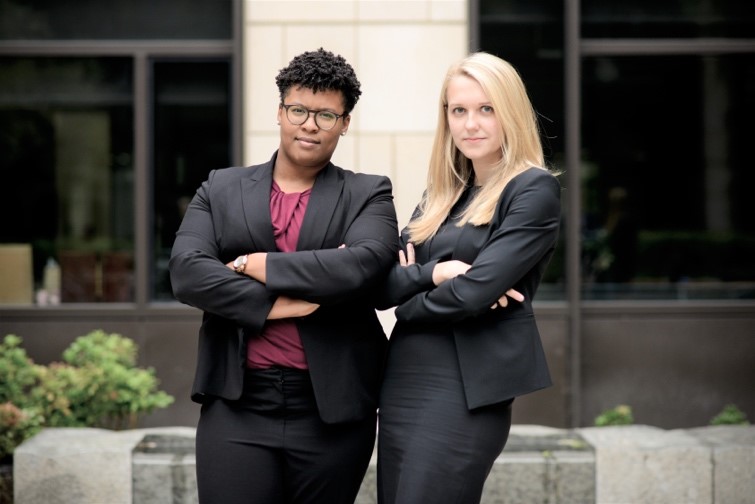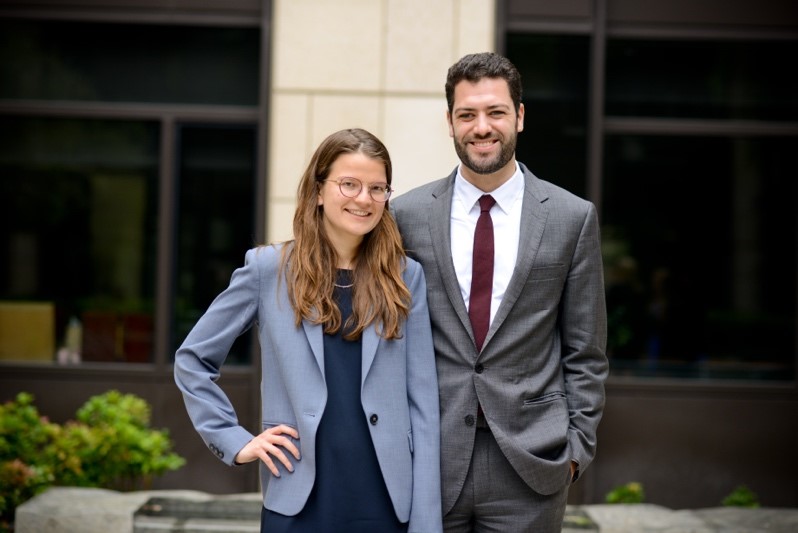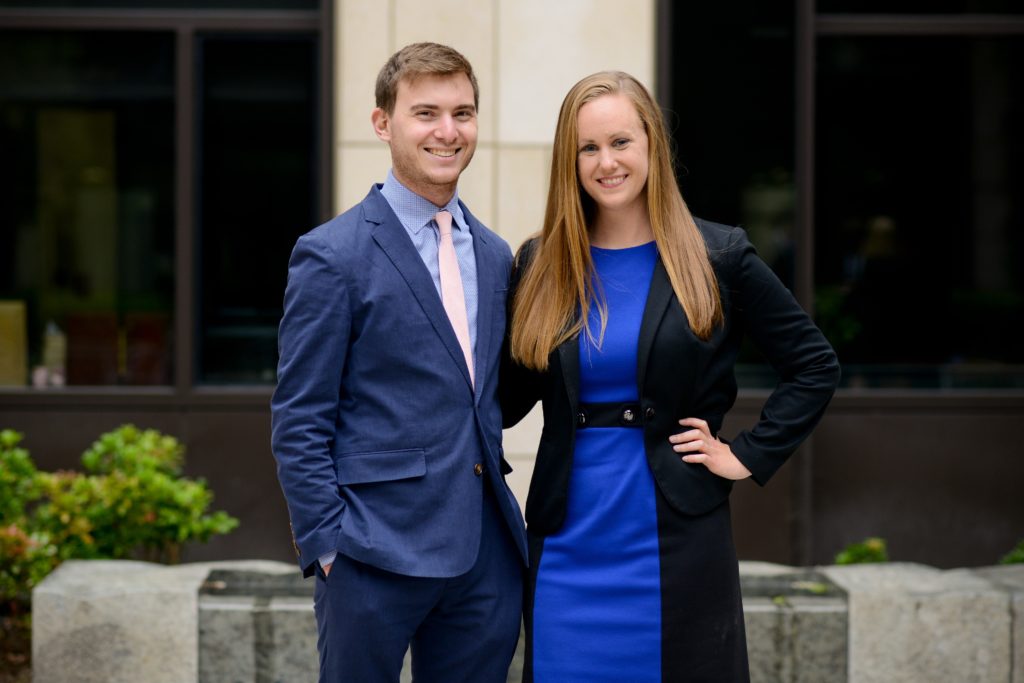CDC Spring 2018: Holistic Representation & Cutting Edge Advocacy
The spring quarter was an exciting one for Stanford Law School’s Criminal Defense Clinic. Eight full-time students were guided by Director Ron Tyler and Clinical Supervising Attorney Suzanne Luban, in cooperation with the Santa Clara County Public Defender’s Office and the San Mateo County Private Defender Program. CDC students represented clients in several misdemeanor cases in both counties and conducted pioneering bail litigation in felony cases in Santa Clara County Superior Court’s Hall of Justice.

At the heart of all of our work are the principles of client-centered and holistic representation, as well as a dedication to keen advocacy and steely-eyed persistence.

Helen Lawless (‘19) and Britany Riley (‘19) spearheaded the CDC’s involvement in the vanguard of constitutional bail litigation. Joining forces with Santa Clara County deputy public defenders Ben Stewart and Avi Singh, they filed a Humphrey bail motion seeking pretrial release to a rehabilitation facility for a client who had never received substance abuse treatment. The team advocated passionately in chambers and were prepared for a full hearing. Instead, the Court subsequently granted the defense request at the outset of the hearing! In San Mateo County, Helen and Britany filed a Serna motion in a case brought more than two years after the traffic stop and arrest. They also prepared to file a suppression motion. However, in the first of several remarkable dismissals, the Clinic received the prosecution’s Motion to Dismiss before hearings on either motion. The victorious team then obtained an order sealing the client’s arrest records under new Penal Code section 851.91.

Anjuli Branz (‘19) and Danny Yadron (’19) succeeded in getting two misdemeanor cases dismissed—before they even filed their motions! This intrepid team went on to fight for the pretrial release of a 24-year-old man being held on marijuana charges, winning first in one court, only to be thwarted the following day by another court. Asserting their client’s equal protection rights in the burgeoning area of bail litigation, these defenders had to contend with a sudden grant of review of the Humphrey case by the California Supreme Court, which meant the ruling was no longer binding on the trial court. They pivoted to adapt their written motion and oral arguments to emphasize the constitutional underpinnings of the landmark Humphrey decision.

Emma Schindler (‘19) and Brendan Sasso (‘19) took on an overzealous police officer on behalf of a woman subjected to an unconstitutionally prolonged detention and a fishing expedition arising from a simple traffic stop. After filing their reply brief, they mounted an impressive offense at the contentious suppression hearing. Emma cross-examined the officer using his own body-cam video (assisted by the AV support team of Britany and Helen) to impeach him and to educate the court. Brendan argued both passionately and logically, but the judge was unpersuaded. In true holistic fashion, this team also assisted their client in making inroads against the many other obstacles in her life, including homelessness, health issues, and a suspended driver’s license. In their other misdemeanor case, Emma and Brendan negotiated a favorable disposition.

David Oyer (‘19) and Emily Pehrsson (‘19) aggressively investigated and prepared for a showdown with profiling police officers in Santa Clara County’s Palo Alto branch courthouse. They filed their reply brief, and then went to court. At a hotly contested suppression hearing, David and Emily each cross-examined an officer. David presented relevant body-cam footage (ably assisted by the AV support team of Anjuli and Danny) against the court’s resistance, and Emily gave a strong closing argument. Although the judge denied the motion to suppress, the team was able to secure a resolution that will lead to dismissal after their 19 year-old client completes community service. Learning about their client’s incredible life story (five open heart surgeries), his goals and successes, as well as the challenges he overcame, was a powerful experience as well as a key negotiation tool. In another misdemeanor case, this team brought in an immigration expert to consult with the client, and rewarded his treatment efforts by persuading the judge to accept his already-completed treatment program as a basis for future dismissal.
